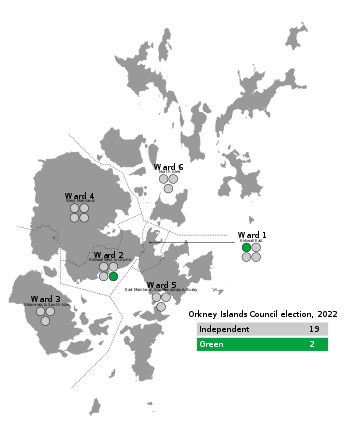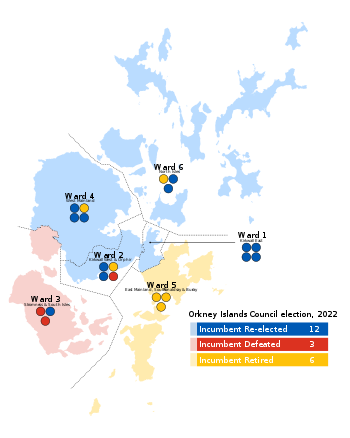| |||||||||||||||||||||||||||||||||||||
21 seats to Orkney Islands Council 11 seats needed for a majority | |||||||||||||||||||||||||||||||||||||
|---|---|---|---|---|---|---|---|---|---|---|---|---|---|---|---|---|---|---|---|---|---|---|---|---|---|---|---|---|---|---|---|---|---|---|---|---|---|
| |||||||||||||||||||||||||||||||||||||
| |||||||||||||||||||||||||||||||||||||
Elections to the Orkney Islands Council were held on 5 May 2022 on the same day as the 31 other Scottish local government elections. As with other Scottish council elections, it was held using single transferable vote (STV) – a form of proportional representation – in which multiple candidates are elected in each ward and voters rank candidates in order of preference.
The elections were the first held since the passage of the Islands (Scotland) Act 2018 which allowed wards in Scottish councils containing islands to be reduced to single- and dual-member wards. Changes were made to the boundaries in the Orkney Islands but the six wards created under the Local Governance (Scotland) Act 2004 remained.
As with previous elections in the area, independent councillors retained a large majority of the seats on the council and retained control of the administration. The Greens – who won their first representation on the council in 2017 – increased their number of seats to two.


